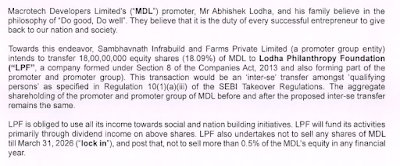The Monopoly of Rail Neer: Indian Railways' Exclusive Water Supplier
Launched in 2003, Rail Neer has generated a total revenue of INR 326.66 Crore (as of March 31, 2024). Available in 750 ml (MRP: INR 10) and 1-liter (MRP: INR 15) bottles, it is positioned as an affordable option for passengers.
Rail Neer Financial Performance (2018-2024)
Rail Neer’s Price Remained Unchanged Since 2012
Unlike private brands, Rail Neer falls under a controlled price segment, regulated by the Ministry of Railways. Despite inflation averaging 7% annually, the current MRP of INR 15 for a 1-liter bottle was fixed in 2012 through Railway Board Commercial Circular No. 72 of 2012.
- Government Control: The Ministry of Railways regulates pricing to keep drinking water affordable for passengers.
- Affordability over Profitability: Despite rising costs in raw materials, power, and labor, the government prioritizes affordability over profitability.
- Regional Pricing Differences: Kerala has enforced an MRP of INR 13 per liter under the Essential Commodities Act, making pricing even more rigid.
- No Market-Driven Adjustments: Unlike private players, IRCTC cannot freely adjust Rail Neer's prices based on demand or cost fluctuations.
In a controversial development, IRCTC received a demand notice for INR 50.41 Crore from the National Anti-Profiteering Authority under Section 171 of the CGST Act, 2017.
What Led to This?
- Before GST (pre-July 2017), the total tax on Rail Neer was 24% (Excise 12.5% + VAT 12.5%).
- After GST implementation, the tax rate dropped to 18%.
- The Anti-Profiteering Authority argued that IRCTC did not pass the tax benefit to consumers by reducing the price below INR 15 / INR 10 and raised a profiteering claim.
Ironically, despite strict price caps and limited profitability, IRCTC is under pressure to reduce prices further due to indirect tax changes.
Expanding Rail Neer’s Manufacturing Capacity
With an average of 12.38 lakh railway tickets booked daily in FY 2023-24, the demand for packaged drinking water is immense.
Current Production & Expansion Plans:
- 19 Operational Plants across India, producing 17.68 lakh liters/day.
- New Plants in 2023-24: Kota, Simhadri, and Bhubaneswar (each producing 72,000 bottles per day).
- Expansions: Capacity enhancements at existing plants and a new plant at Mallavalli (Andhra Pradesh) increasing capacity to 18.40 lakh liters/day.
Rail Neer Plant at Simhadri – A Sustainability Milestone
The Simhadri Plant, developed in collaboration with NTPC Ltd., is India’s first flue gas-based seawater desalination project. Here’s why it’s innovative:
- Converts waste seawater into drinking water using a low-carbon multi-effect desalination system
- Utilizes waste heat from NTPC’s flue gases, reducing energy consumption.
Conclusion
While Rail Neer remains a vital service for Indian railway passengers, its monopolistic nature, price control, and regulatory scrutiny create unique operational challenges. Despite rising production costs and growing demand, IRCTC cannot increase prices, limiting its profitability.
What are your thoughts on Rail Neer’s monopoly? Should the pricing be deregulated? Let us know in the comments!






Great blog, loved it.
ReplyDeleteGreat blog, loved it.
ReplyDelete